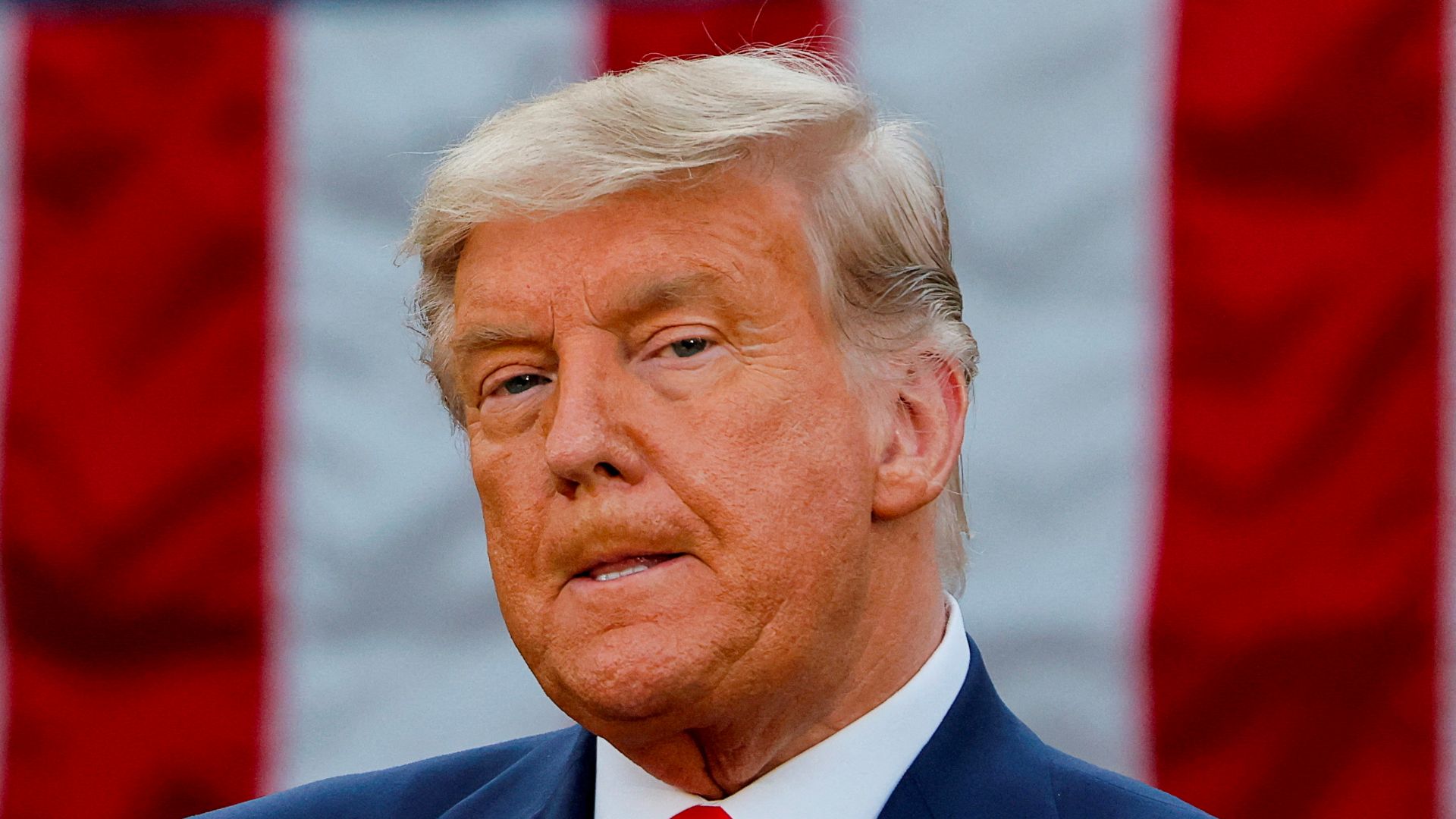The indictment, announced by Fulton County District Attorney Fani Willis, is now the fourth set of criminal charges to hit Trump, and the second lot relating to his alleged efforts to overturn the 2020 election results.
This information has been divulged by sources familiar with the matter.
The latest charges further compound the legal challenges confronting Trump, who remains a prominent contender for the Republican nomination in the upcoming 2024 presidential election.
A total of 11 counts have been brought against Trump and his associates, including charges of forgery and racketeering, which are typically employed to target organized crime activities.
Among those indicted are Mark Meadows, Trump’s former White House chief of staff, and lawyers Rudy Giuliani and John Eastman.
The charges stem from a pivotal Jan. 2, 2021, phone call during which Trump allegedly pressured Georgia’s top election official, Brad Raffensperger, to find enough votes to reverse his narrow loss in the state. Raffensperger refused to comply with the request.
The indictment also delves into allegations concerning the Trump campaign’s purported efforts to undermine the U.S. electoral process by submitting falsified slates of electors. These electors play a pivotal role in the Electoral College, which determines the president and vice president.
Maintaining his innocence
Trump has consistently denied any wrongdoing and has accused Fulton County District Attorney Fani Willis, who is an elected Democrat, of pursuing politically motivated charges. However, the court briefly posted a document outlining the felony charges against Trump on its website earlier in the day, only to remove it without explanation.
Willis’s office maintained that no charges had been officially filed at that time and declined to provide further comment.
This new indictment joins the array of legal issues Trump currently faces. He has already entered a not guilty plea in three other criminal cases.
One of these cases, set to begin on March 25, 2024, in New York, revolves around a hush money payment to a porn star. Another trial, scheduled for May 20, 2024, in Florida, pertains to a federal case involving classified documents. Trump has pleaded not guilty in both instances.
A separate indictment filed in a Washington federal court accuses Trump of unlawfully attempting to overturn the results of the 2020 election.
Trump has vehemently denied any wrongdoing in this matter and a trial date has yet to be established.
The significance of these charges extends beyond Trump’s personal legal battles.
Georgia, which was historically a reliable Republican stronghold, has evolved into a pivotal battleground state capable of influencing presidential election outcomes.
Despite the mounting legal challenges and the lack of corroborating evidence, Trump continues to assert that he emerged victorious in the November 2020 election.
Numerous court cases and state investigations have contradicted this claim.
Additionally, Trump is slated to face a civil trial in New York in October, which alleges that he and his family business committed fraud to secure more favourable terms from lenders and insurers.
This follows a $1.6 million fine imposed on Trump’s company in December following its conviction for tax fraud in a New York court whether Trump and his allies interfered with the 2020 Georgia election.
A special grand jury facilitated the collection of evidence, allowing prosecutors to gather information without immediately filing charges.
Recent developments indicate a more defined timeline for when the district attorney will present evidence to a grand jury.
Witnesses, including former Georgia lieutenant governor Geoff Duncan and journalist George Chidi, have been summoned to testify on Tuesday, a clear indication that prosecutors are advancing towards charging Trump this week.
The presentation is anticipated to span two days, coinciding with the grand jury’s typical meeting schedule, which occurs on Mondays and Tuesdays.
In Georgia, it’s customary for grand juries to return indictments on the same day as presentations.
Prosecutors have identified approximately seven statutes within the Georgia state criminal code, encompassing charges such as racketeering, election law violations, and other non-election-related offences.
These charges are expected to target over a dozen individuals as part of an extensive indictment.
Accumulated evidence
For the Trump case, the Rico statute is of particular interest. It necessitates the demonstration of an “interrelated pattern of activity by and through the [public] office” based on at least two predicate crimes from a designated list. Prosecutors in the Trump case have accumulated evidence of a potential Rico charge rooted in activities like influencing witnesses and computer trespass.
Among the potential election law charges are criminal solicitation for election fraud, conspiracy to commit election fraud, and intentional interference with the performance of election duties. Additionally, the prosecutors are considering general criminal solicitation charges, even beyond the confines of Georgia’s election law statutes.
Heightened security
Preparations for potential charges against Trump and his associates have prompted heightened security around the Fulton County district attorney’s office and the Georgia superior court. Roads have been closed, and temporary barricades erected.
In response, Trump has launched personal attacks against Willis, labeling her as “racist” and accusing her of leniency towards gang members. These accusations, devoid of merit, have not swayed the ongoing legal proceedings.
The district attorney’s exhaustive two-year investigation scrutinises
The indictment, announced by Fulton County District Attorney Fani Willis, is now the fourth set of criminal charges to hit Trump, and the second lot relating to his alleged efforts to overturn the 2020 election results.




 Leaders3 days ago
Leaders3 days ago


 Leaders3 days ago
Leaders3 days ago


 Shows4 days ago
Shows4 days ago


 Leaders2 days ago
Leaders2 days ago


 Shows4 days ago
Shows4 days ago


 Leaders2 days ago
Leaders2 days ago


 Shows4 days ago
Shows4 days ago


 News4 days ago
News4 days ago





